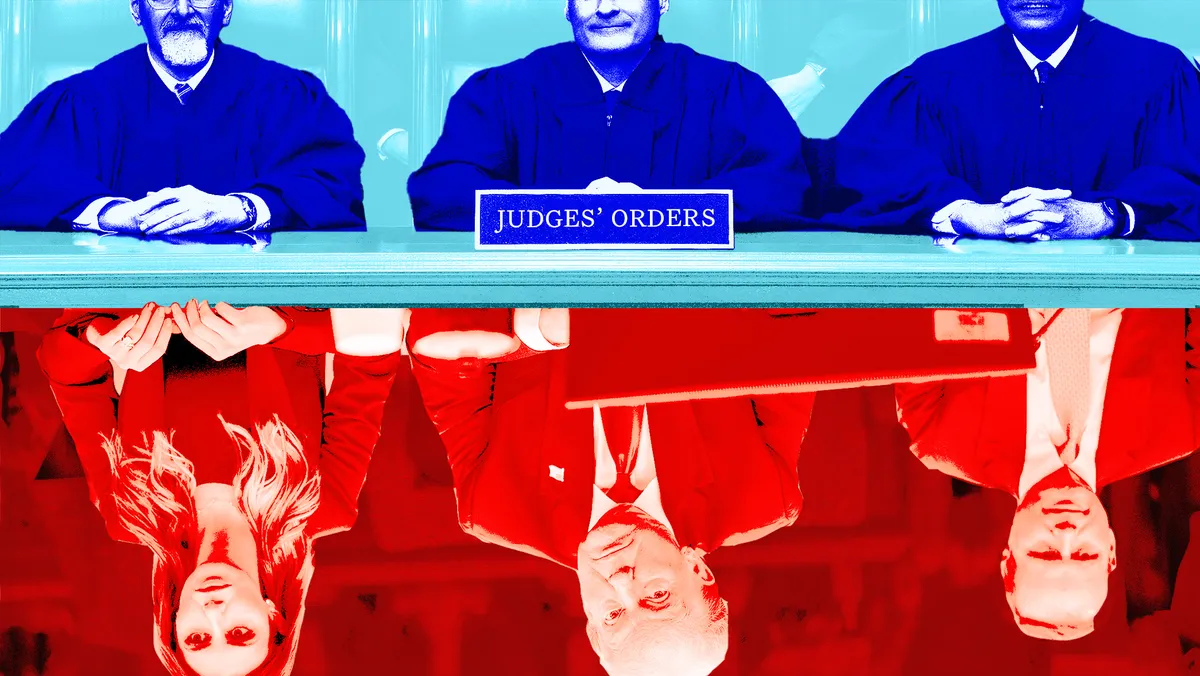
One of the most alarming developments during the second Trump administration is the apparent defiance of court orders by various government agencies. Agencies, including the State Department, have been accused of ignoring, evading, or deliberately delaying compliance with judicial decrees. As a result, courts have issued increasingly stringent warnings, emphasizing that adherence to their orders is not optional. Litigants have urged these courts to hold the responsible government officials in contempt of court.
However, the prospect of holding executive branch officials in contempt poses a potential constitutional crisis. The power of contempt allows courts to compel compliance with their orders and to punish actions that obstruct justice. Ultimately, this power is supported by the courts' ability to jail individuals who defy their directives. While judges do not have the authority to make arrests themselves, the enforcement arm—the U.S. Marshal’s Service—reports to both the courts and the Attorney General. This dual reporting structure raises concerns that, if a court orders the arrest of a defiant official, the President or Attorney General Pam Bondi might revoke that order, leaving the courts with limited options.
As Erwin Chemerinsky, Dean of Berkeley Law School, points out, “the hard truth for those looking to the courts to rein in the Trump administration is that the Constitution gives judges no power to compel compliance with their rulings — it is the executive branch that ultimately enforces judicial orders.” Yet, do courts truly lack the authority to jail individuals who defy their orders, especially if the marshals refuse to act? A closer examination of the courts’ enforcement powers reveals that judges may not need to rely solely on the marshals for compliance.
Contempt of court is classified as either civil or criminal, based on whether a court seeks to compel compliance or punish obstructive behavior. In cases of criminal contempt, the executive branch indeed has a veto over contempt proceedings. Although Supreme Court case law and the Federal Rules of Criminal Procedure recognize the courts’ authority to appoint private attorneys for prosecution of contempt, the President can pardon the contemnor, rendering such prosecution moot. However, the situation is different for civil contempt. The Supreme Court has long maintained that “a pardon cannot stop” courts from punishing civil contempt cases.
While the marshals have traditionally enforced civil contempt orders, courts possess the authority to appoint other individuals to step in if marshals refuse to act. This power is grounded in an obscure provision of the Federal Rules of Civil Procedure, specifically Rule 4.1, which outlines how legal orders are to be served. The rule states that process must generally be served by a U.S. marshal, deputy marshal, or a person specially appointed for that purpose. Notably, Rule 4.1(b), titled “Enforcing Orders: Committing for Civil Contempt,” does not specify who may enforce such orders, thus allowing the court to appoint individuals beyond marshals.
This interpretation aligns with other provisions that permit courts to utilize alternative parties for enforcement. For instance, rules governing civil forfeiture allow courts to appoint individuals, in addition to marshals, to enforce their orders. This broader understanding emphasizes the necessity for courts to have independent authority to punish contempt in order to uphold the rule of law. As articulated by the Supreme Court, “If a party can make himself a judge of the validity of orders which have been issued, and by his own act of disobedience set them aside, then are the courts impotent, and what the Constitution now fittingly calls ‘the judicial power of the United States’ would be a mere mockery.”
It's important to recognize that appointing someone other than marshals to enforce civil contempt orders would be a significant step for the courts. Historically, due to the marshals' commitment to their legal obligations, courts have rarely acted in this capacity. However, if the need arises, individuals such as court security officers, probation officers, or local law enforcement can efficiently apprehend contemnors and bring them to court. Unlike marshals, these individuals would be accountable solely to the court. Thus, even in the face of a rogue marshals service, there are viable paths for courts to enforce the rule of law. If courts have the courage to act, the legal tools to ensure compliance are indeed available.